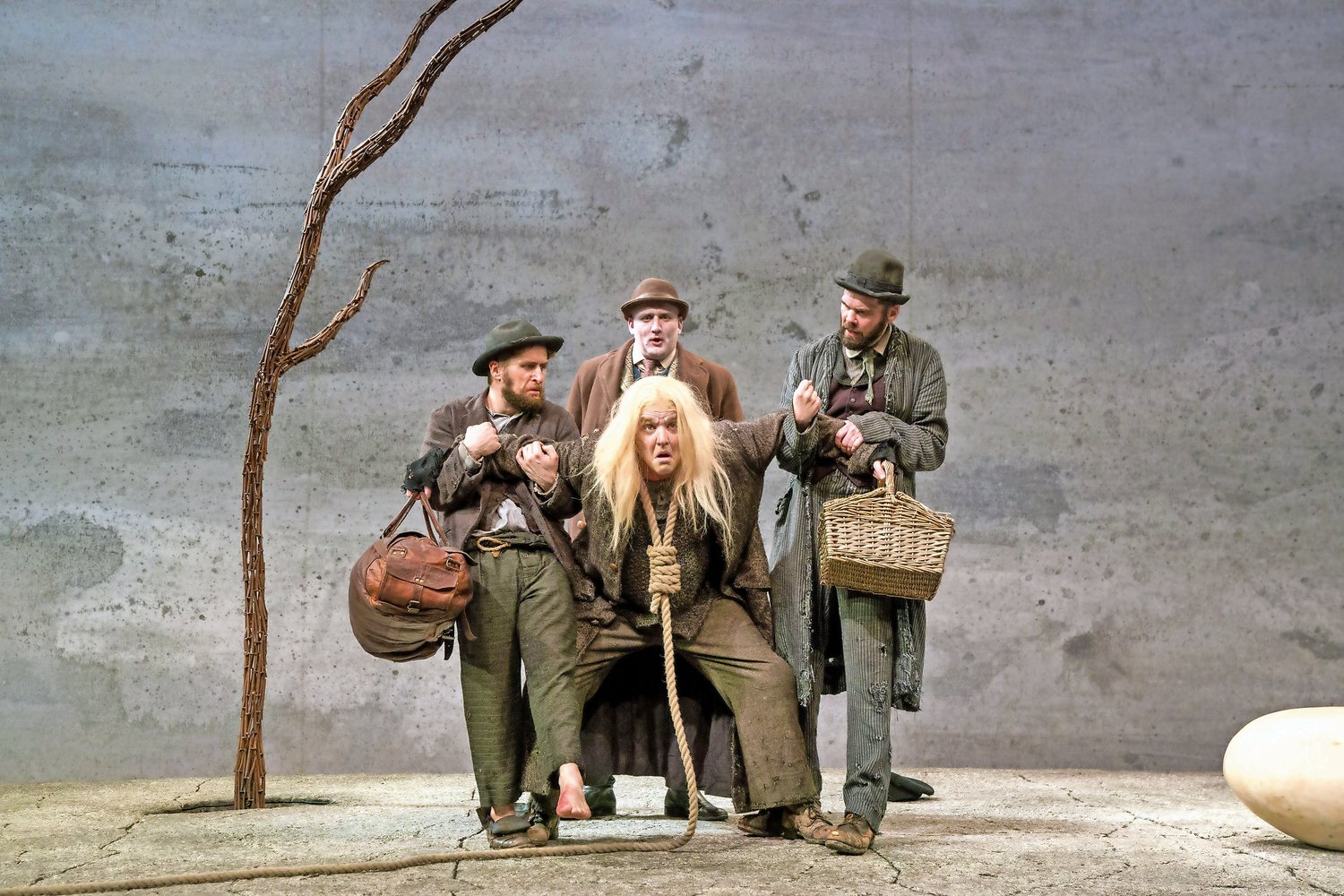‘Waiting for Godot’ takes audience on a quest without end
A moment in the Druid theatre company’s production of “Waiting for Godot” took me by surprise, and was strong enough to illuminate the entire landscape of Samuel Beckett’s masterpiece.
This split second was a silent abstraction in the rich stream of language and imagery that director Garry Hynes and her team bring to this elegiac production, a headliner of Lincoln Center’s White Light Festival.
The moment arrives late in the second act. The rhythms of Beckett’s elliptical terrain bring us to a crossroads of uncertain prospects.
“Nothing to be done,” is the refrain. We see the truth of it. Our legendary tramps, Vladimir and Estragon, wait, isolated and adrift in the silence.
Vladimir (Marty Rea), in his tattered coat and ruin of a hat, stands quietly alone, beside the solitary, gnarled tree which serves to deliver so much of the play’s symbolic treasure.
My surprise was in the power of Vladimir’s shadow. As James F. Ingalls’ lighting etched a stark, angular silhouette across the cold stone of set designer Frances O’Connor’s back wall, I saw multitudes, and the upheaval of civilization itself. The image mirrored the tramps’ observation that they could hear the wailing of lost souls on the whispering of the wind.
Like the play’s slim hints of hope, its flashes of wit, and grim bearings, the moment opened a door onto Beckett’s singular intuition.
Intentional or not, Vladimir’s shadow appears to be that of a doughboy, the classic World War I soldier, standing vulnerable and alone.
For this review, the shadow of war is the skeleton key to “Waiting for Godot.”
Beckett was no stranger to the turmoil of his generation. After the mass slaughter of “The war to end all wars,” and the conflicts of revolutionary Ireland, Beckett — in exile — had to flee the century’s ultimate madness.
He served, honorably, in the French resistance. Beckett was a target of the Gestapo, and his play — with its themes of dislocation, risk and enslavement — serves to hint at the horrors of the underground.
A rendezvous with strangers in the open country, the persistence of hunger, the shelter of a ditch, a message foretold and, of course, waiting, and waiting for answers, have long been through to reflect Beckett’s experience in occupied France.
Is there any relief? Sure, of a kind — in the play’s tragicomic twists of slapstick, those vaudevillian undercurrents of cruelty and pain, and the characters’ circular dialogue of desperation. Everything is bleak — and riveting.
Civilization has broken. We have to wait, among the ruins. And wait some more.
Maybe there is hope. Who knows? Who can even dare dream of it? Fragments of culture — a derby, a briar, a satchel, a half-remembered song — signify both what is lost and what might yet carry the day.
Beckett weaves contradictions masterfully through his landmark achievement, and the Druid cast members are superb stewards of his secret mission, to convey both the horrors and the dark humor of mankind’s foolish campaign to destroy itself.
Like news of the elusive Mr. Godot, this marvel is with us in New York for only a short time. See it while you can. Such a chance might not come around again.






